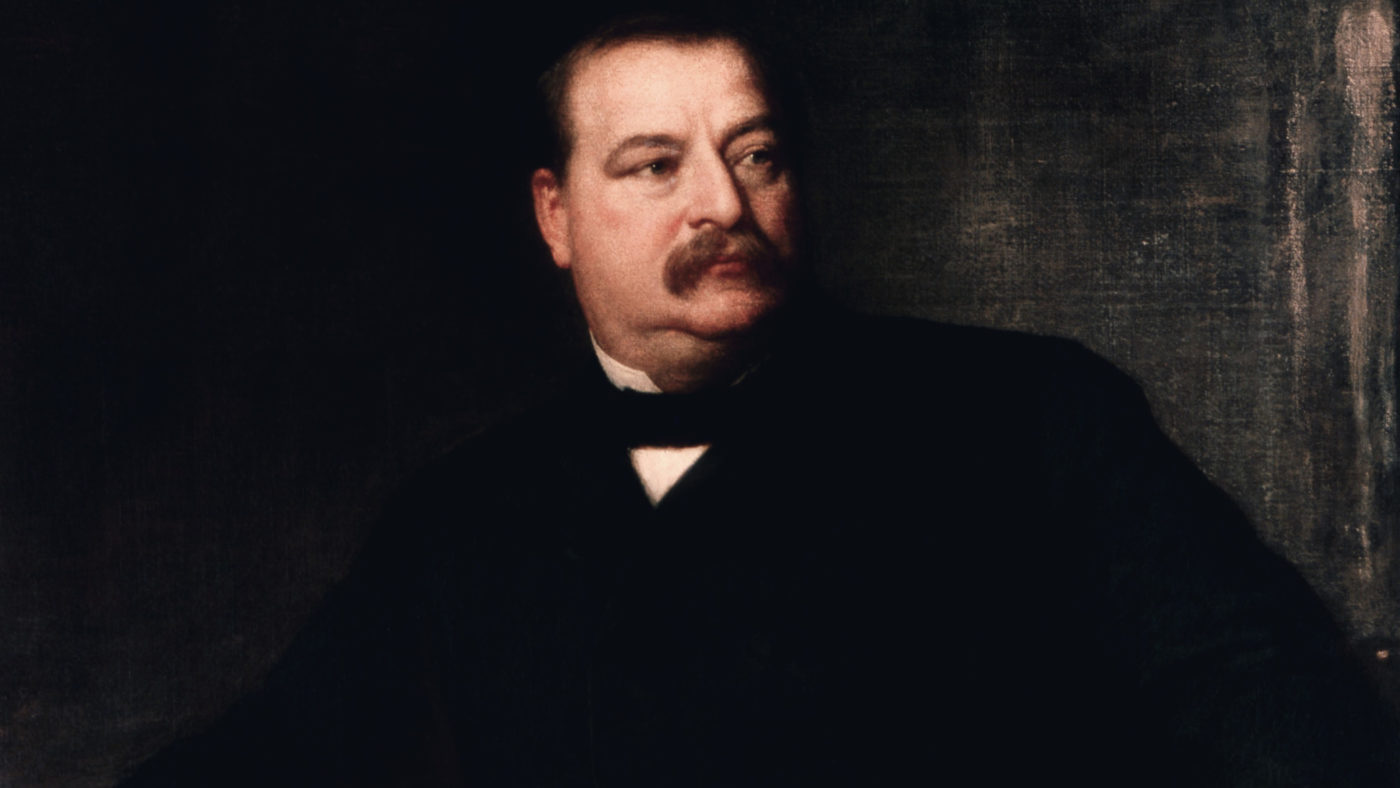March 18th was the birthday of one of America’s most underappreciated Presidents – Grover Cleveland.
Cleveland was unique. He was the first Democratic President after the Civil War, and the only President to serve two non-consecutive terms (also winning the popular vote in the intervening election), to be single when elected and marry in the White House, or to have a candy bar named after his daughter (Baby Ruth).
His character, however, was his most important attribute. For him, “honest politician” was not an oxymoron. His reputation was so stellar that he was elected Governor of New York without having to make a single campaign speech. Accused of fathering an illegitimate child in one campaign, his instructions to his staff were, “Tell the truth.” But most important for America, rather than ignoring the Constitution’s limitations on federal government power, he took his oath to defend it seriously.
Cleveland realized that “Officeholders are the agents of the people, not their masters.” Therefore, he opposed paternalistic government policies financed by imposing tax burdens on others, since “the theory of our institutions guarantees to every citizen the full enjoyment of all the fruits of his industry and enterprise, with only such deduction as may be his share toward the careful and economical maintenance of the Government which protects him…exaction of more than this is indefensible extortion and culpable betrayal of American fairness and justice.”
Cleveland fought to eliminate government waste throughout his public career, since “waste of public money is a crime against the citizen.” He pushed to restore honesty and impartiality to government, particularly by cutting government favours (including for his own party), because “danger confronts us… [in] popular disposition to expect from the operation of the Government especial and direct individual advantages.”
Cleveland recognized that “The public Treasury… should only exist as a conduit conveying the people’s tribute to its legitimate objects of expenditure,” and so studied every bill Congress passed. He vetoed over 300 of them – more than double than all the Presidents before him. One veto message reveals a central reason: “I can find no warrant for such an appropriation in the Constitution.” Instead, he insisted that “the lessons of paternalism ought to be unlearned and the better lesson taught that while the people should patriotically and cheerfully support their Government, its functions do not include the support of the people.”
He didn’t find “government” to be every answer, regardless of the question. Cleveland tried to eliminate burdensome and inefficient tariffs, “the vicious, inequitable, and illogical source of unnecessary taxation.” He also resisted political pressures to inflate the currency, even when facing a serious recession, since “nothing is more vital to… the beneficient purposes of our Government than a sound and stable currency.”
Unlike modern politicians’ attempts to evade accountability, Cleveland insisted that everyone in government be carefully monitored, since “Every citizen owes to the country a vigilant watch and close scrutiny of its public servants and affairs… [as] the price of our liberty.”
Grover Cleveland’s last words were, “I have tried so hard to do right.” But respecting the Constitution’s limitations on legitimate federal activities, he didn’t find “government” to be every answer, regardless of the question. He once reflected, “I am honest and sincere in my desire to do well, but the question is whether I know enough to accomplish what I desire,” and had the honesty to answer in the negative (“discrediting an abject dependence upon government favor, we strive to stimulate those elements of American character which support the hope of American achievement”). We would do well to recall that answer and the dangers of government that ignores it.
Fittingly, Grover Cleveland dedicated the Statue of Liberty, because he truly aspired to its dedication: “We will not forget that Liberty has made her home here… A stream of light shall pierce the darkness of ignorance and man’s oppression until Liberty enlightens the world.” We could use a man like Grover Cleveland again.
This article was originally published on FEE.org. Read the original article.


